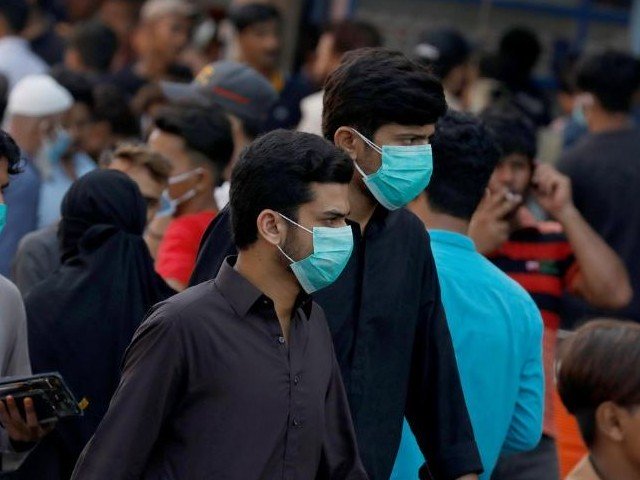
Experts warn against unhygienic face masks
Many small factories are stitching masks in dirty rooms without following scientifically approved methods
KARACHI: Since the outbreak of Covid-19 Pakistan in February 2020, the use of surgical masks - which was only common among surgeons and medical technicians in the past - has now become widespread among the masses.
Masks are worn by people to prevent the virus from entering a person’s nose and mouth. The Infection Control Society Pakistan has, however, expressed its reservations about the unhygienic procedure that sellers and small companies have adopted to stitch face masks. The society has requested the health department to ensure that masks are produced following scientifically approved methods.
The Express Tribune recently surveyed a factory where face masks are locally manufactured and discovered that the setup of the factory was quite unhygienic and the masks were far from clean. Video footage of the process also emerged on social media to create awareness.
During the survey, it was observed that the material used to prepare the masks was lying on a dirty floor and once stitched, factory workers - most of whom were children - continued to dump the masks on the floor. Per medical experts, ensuring that the masks are prepared in a clean and hygienic environment is necessary. If not, masks could carry bacteria and make people sick. Therefore, instead of protecting people from the coronavirus, unhygienically prepared masks can weaken people’s immune systems and make them more vulnerable to the disease.
Speaking on the matter, Infection Control Society Pakistan president Dr Rafiq Khanani said that face masks prepared in highly unhealthy environments are unfit for use.
“I wonder how many viruses and bacteria are carried by the masks during the manufacturing process,” he said, referring to the video footage of the factory. “The government should devise a uniform policy regarding the preparation of face masks. Moreover, the public is unaware of the technical phases of mask preparation, so the government must educate them.”
He added that it is a particularly important issue which should not be brushed under the rug and the health department must take immediate notice of the situation.
Dr Khanani recommended that people should wear face masks after thoroughly washing them with a disinfectant, such as Dettol, and a good detergent.
“No standard operating procedures (SOPs) have been implemented for the manufacturing of face masks, which can give rise to further diseases,” he lamented.
Dr Khanani further suggested keeping used face masks in a safe place to avoid the growth of bacteria or viruses on them. Moreover, he cautioned the public to strictly avoid using each other’s masks.
“It has been observed that people remove their masks and keep them in their cars to be used later on. This can lead to the growth of bacteria on the masks; therefore, such practices must be avoided.”
Substandard quality, inflated prices
Even though the masks are of substandard quality and are prepared unhygienically, people still end up paying a lot to purchase them.
Owing to the growing demand for masks, profiteers immediately capitalised on the situation and increased their prices. A box of 50 surgical masks, which was earlier available for Rs300, is now being sold for Rs800 to Rs1,100. The increase in demand also led to an acute shortage of masks in the market as many sellers started hoarding them to later sell in the black market at inflated rates.
As the practice became widespread, law enforcement agencies took action against the culprits. Regrettably, however, a common man could not get any relief as each box of surgical masks is still being sold for Rs700 at wholesale rates and Rs1,000 in shops and medical stores.
Published in The Express Tribune, June 23rd, 2020.















COMMENTS
Comments are moderated and generally will be posted if they are on-topic and not abusive.
For more information, please see our Comments FAQ